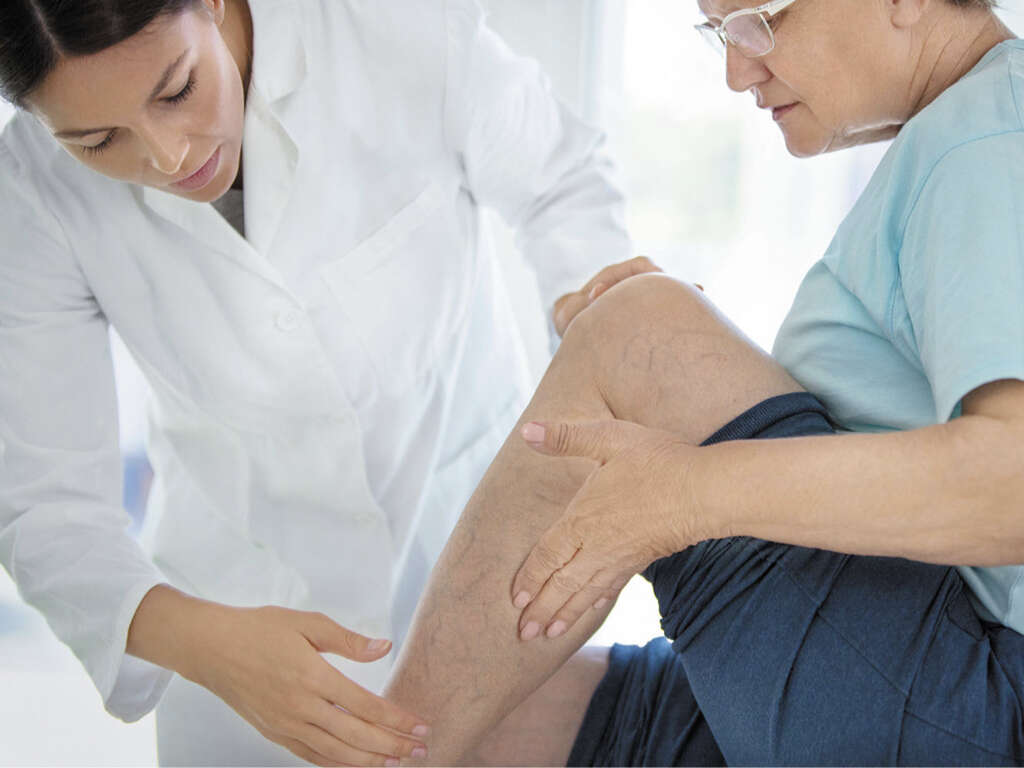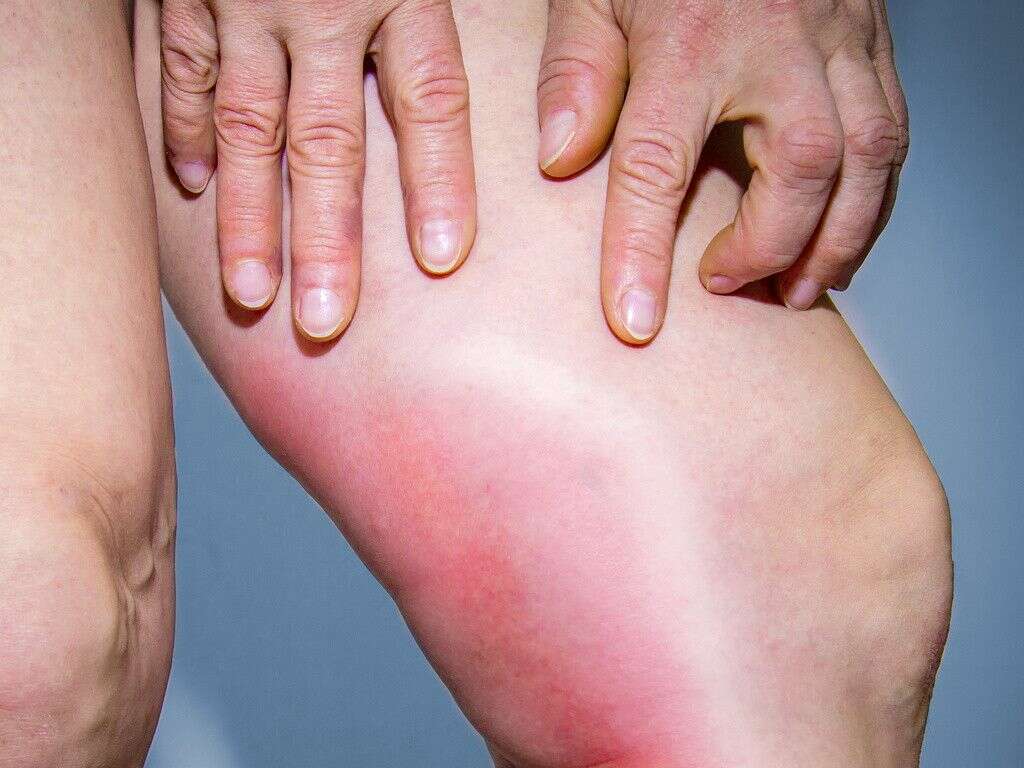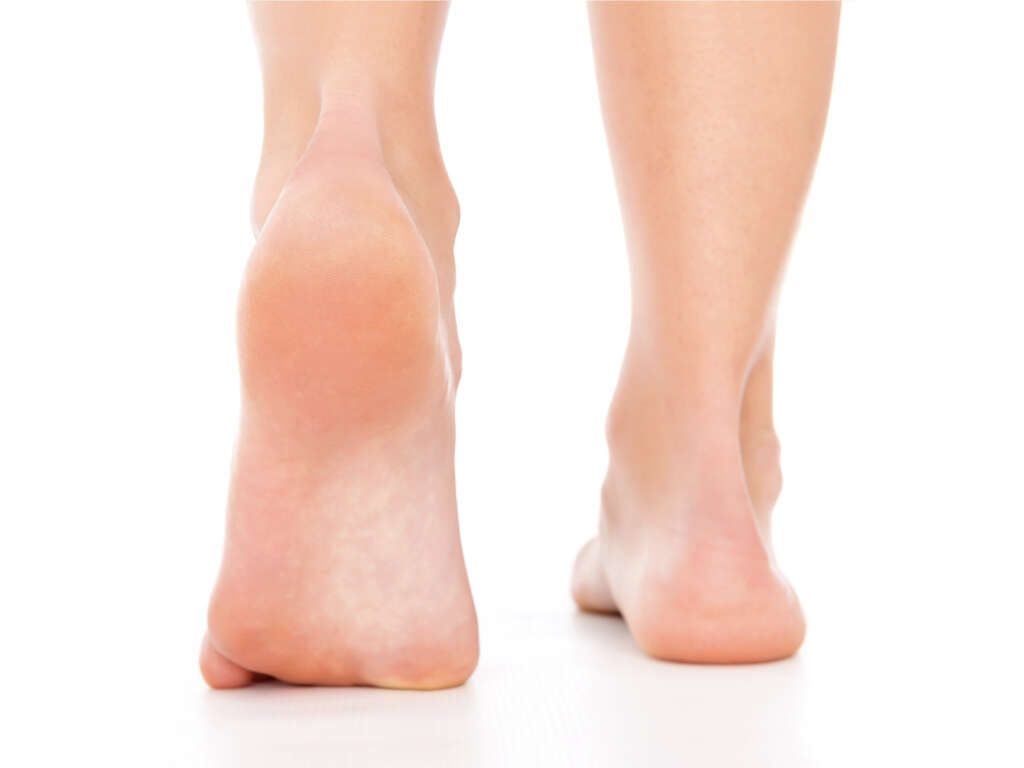10 Signs of A Blood Clot In Leg
The clotting of blood is a normal part of good health. If our blood didn’t clot, we wouldn’t be able to heal after a wound. The blood clotting process is what allows us to develop scabs and begin the healing process instead of bleeding indefinitely. Unfortunately, clots don’t only occur as a response to injury but can also form inside the body causing various problems.
One of the most common places that blood clots appear in the body is in the deep veins of the legs. This condition is known as deep vein thrombosis, and it can be quite dangerous and uncomfortable. DVT can cause serious vein blockages and obstruct oxygen from travelling throughout your body.
In serious cases, a clot can break away and move to other parts of the body. If it reaches your lungs, it can cause pulmonary embolism, a condition that can potentially be fatal. Fortunately, being aware of the warning signs of DVT can be useful for managing the problem and eliminating the clot before it becomes a threat to your life.

Blood Clot In Leg Sign #1: Swelling
Swelling is one of the most common symptoms of DVT. It usually affects only one leg, although, in rare cases, a person can develop a clot in each leg and experience swelling in both.
Because blood clots block the veins, thus preventing natural blood flow, your blood tends to pool up in the areas where the clot is located. If you experience a spontaneous swelling in your leg, followed by pain or discomfort, you might be developing a blood clot.
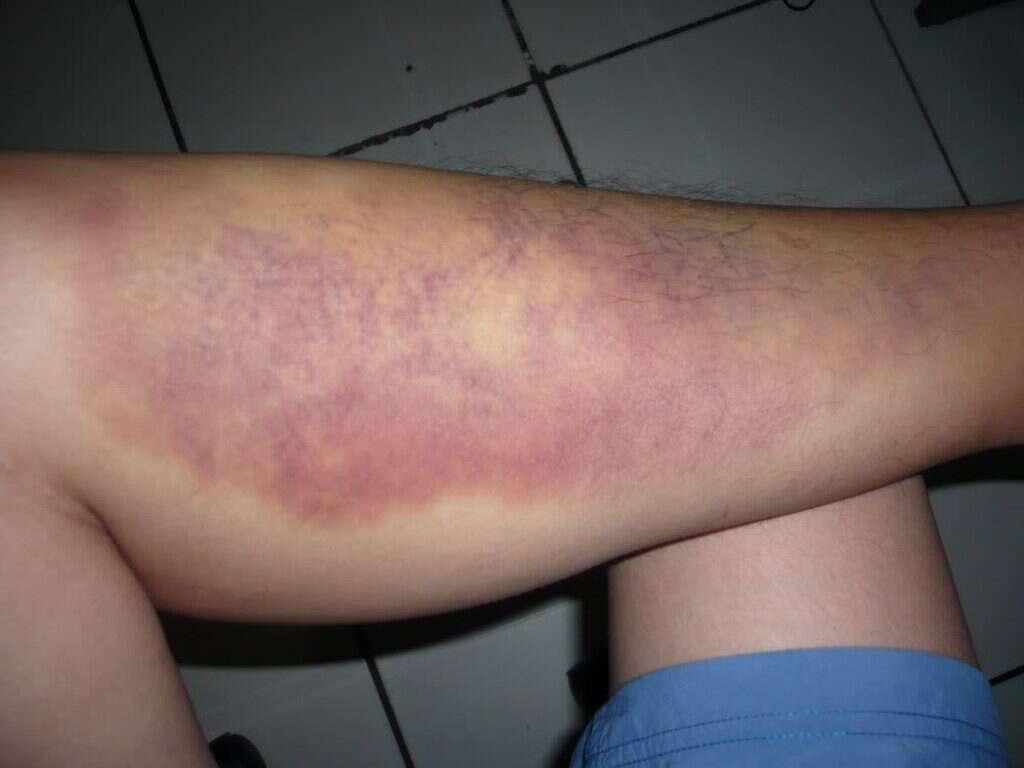
Blood Clot In Leg Sign #2: Pain
Pain can be caused by many factors, so assuming that the reason is a blood clot in your leg isn’t justified. However, if the pain comes in conjunction with other symptoms, then you might want to get some treatment.
The pain caused by a blood clot is often similar to the pain one feels when they have muscle cramps or strained muscles. For this reason, many people underestimate their state and don’t even know they have blood clots until the condition becomes more serious. The pain of a blood clot is often more intense when walking or flexing your feet.

Blood Clot In Leg Sign #3: Bruising
A bruise is a type of blood clot. However, bruises are normal formations that usually don’t require treatment aside from applying a cold compress.
In some cases, bruising or bruise-like formations may be present when you’re suffering from a blood clot. Therefore bruising, when in conjunction with other symptoms, could suggest that you’re developing a blood clot.
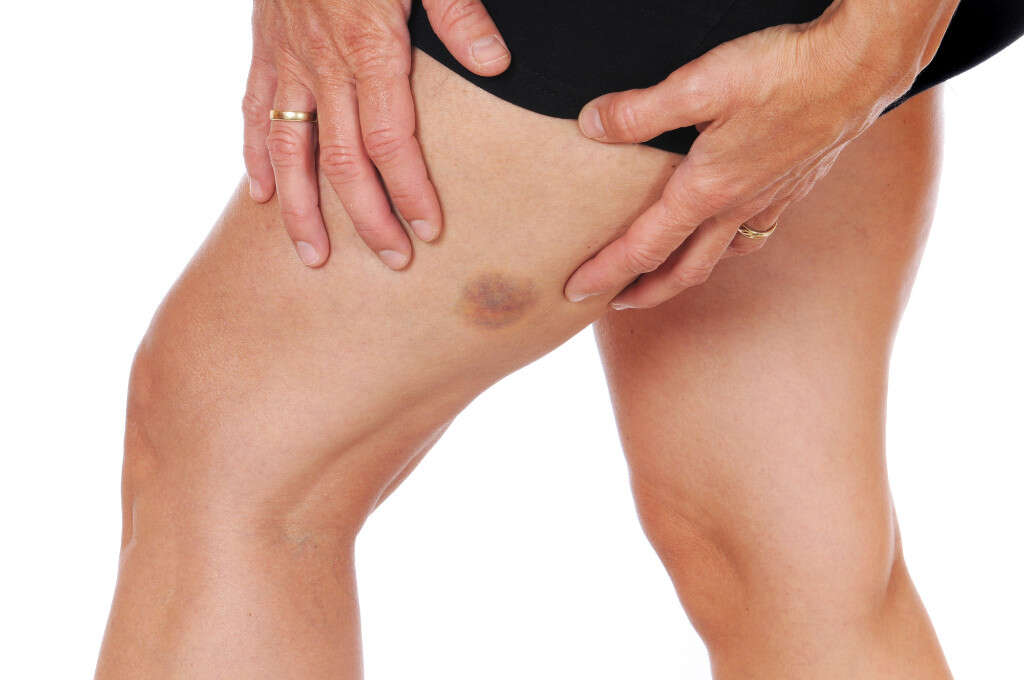
Blood Clot In Leg Sign #4: Redness
Deep vein thrombosis can cause redness of the skin.
This symptom is far more common and apparent than bruising. It tends to spread throughout the affected limb, giving it a very abnormal appearance.

Blood Clot In Leg Sign #5: Warm Skin
Another symptom that occurs as a result of multiple blood clot formation is warming of the skin in the affected and discolored areas. If your entire limb becomes discolored, you may notice that the temperature of your whole leg is slightly increased.
Usually, this doesn’t cause internal discomfort, and you might not even notice the increased temperature unless you’re actually touching your leg.

Blood Clot In Leg Sign #6: Chest Pain
Chest pain doesn’t usually occur unless a blood clot has detached from a vein in your leg and subsequently ended up in your chest. In this case, the clot can cause pulmonary embolism and lead to much more serious problems.
Pulmonary embolism tends to feel quite similar to a heart attack. However, the pain can linger for a long while, becoming most intense when taking a deep breath. The pain tends to increase with every breath that you take, which is why it’s important to seek immediate help.

Blood Clot In Leg Sign #7: Shortness of Breath
If the blood clot in your leg has gone unattended for an extended period of time, it may travel to other areas of your body, including your lungs. If it ends up in your lungs and causes a pulmonary embolism, the clot will impede your air flow.
This, in turn, can make it difficult and quite painful to take a deep breath. As a result, you feel short of breath, compensating with taking shallower, sporadic breaths.

Blood Clot In Leg Sign #8: Racing Heart
If you have already developed a pulmonary embolism, you don’t get enough oxygen in your body, and this leads to a racing heart.
In order to compensate for the low amounts of oxygen, the heart pumps harder, trying to effectively spread the limited amount of oxygen it does receive. This can lead to heart palpitations and increased blood pressure.

Blood Clot In Leg Sign #9: Coughing
Coughing only tends to occur when pulmonary embolism has already developed in the lungs.
Usually, the cough is dry, although, in serious cases, people might cough up excess mucus or even blood. A cough in conjunction with other symptoms is a sure sign that you need to get urgent help.

Blood Clot In Leg Sign #10: Tenderness
Tenderness, unlike pain, is only experienced when pressure is applied to the affected area. It usually produces an extra sensitive and often uncomfortable response.
Many people also report that the sensation of having a blood clot is similar to having a ‘Charley horse,’ or a leg cramp that simply won’t go away. If those are your symptoms, it’s important to seek medical help.






